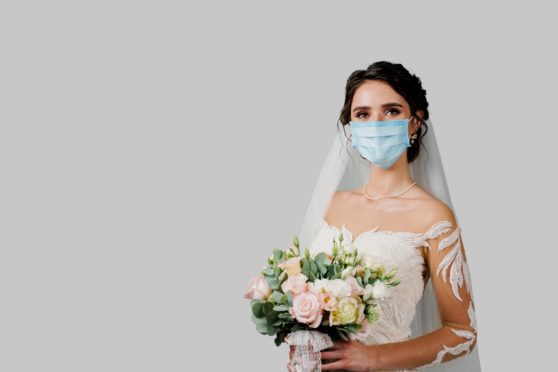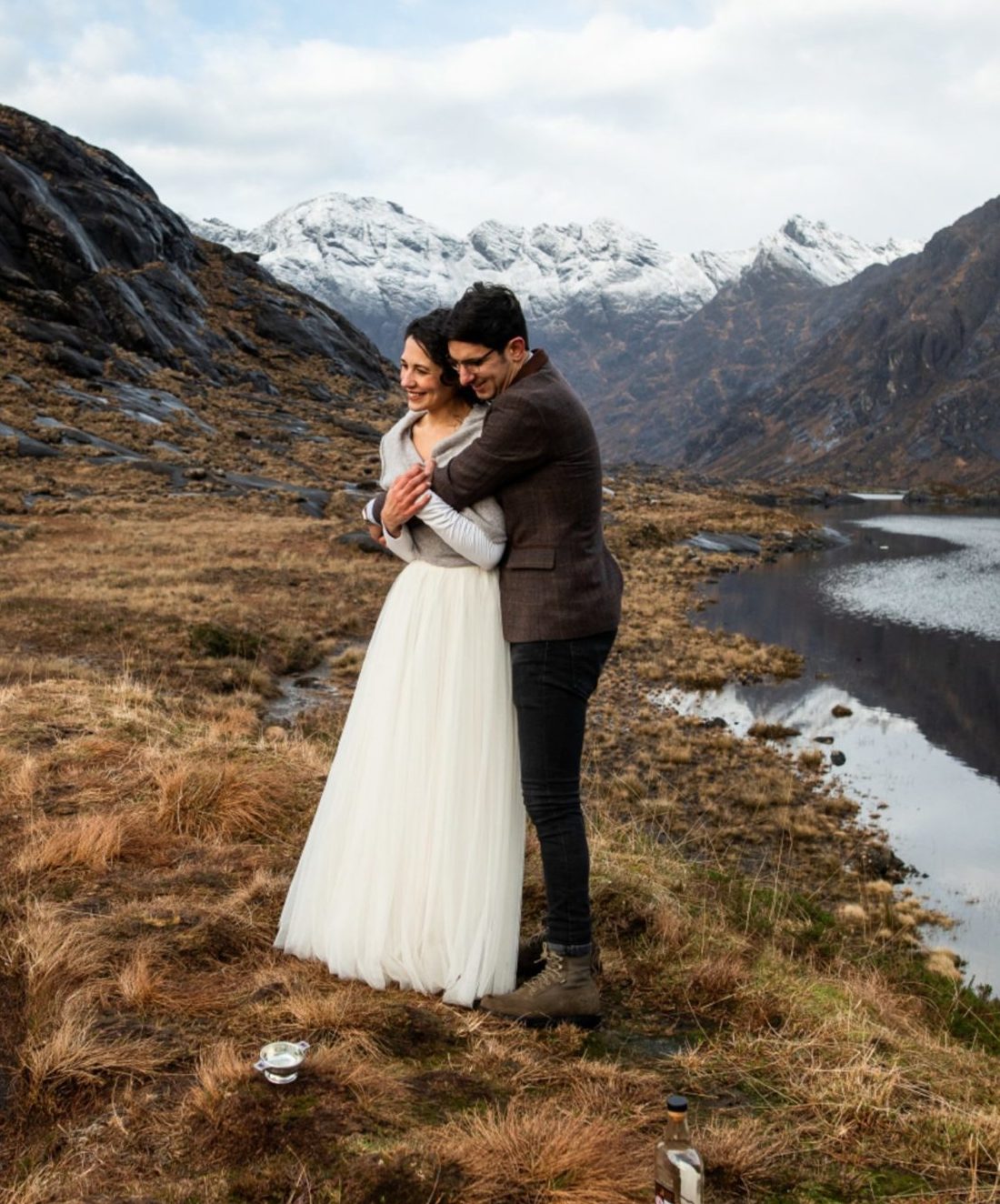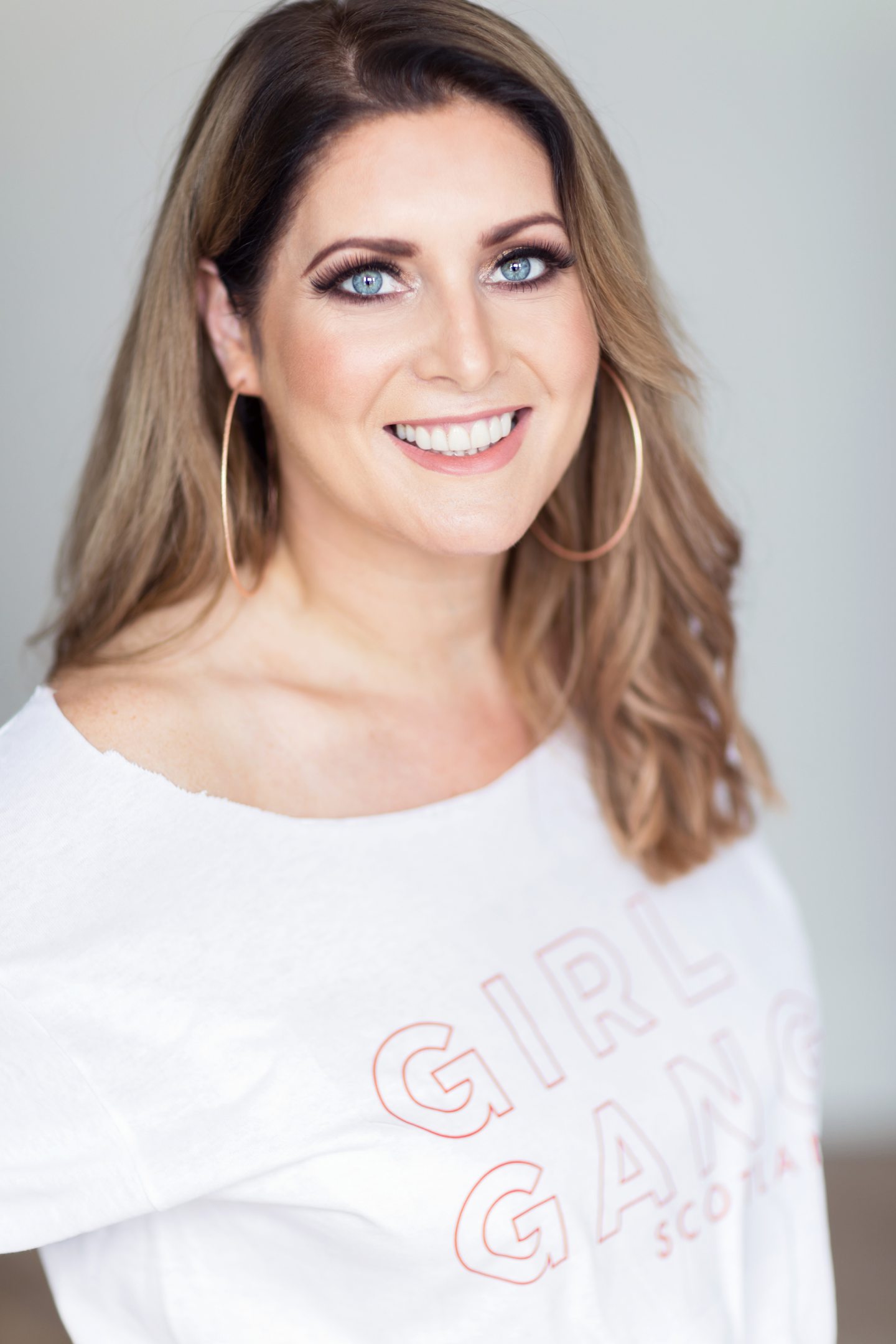
A wedding is supposed to be a joyful day, but thanks to 10 gruelling months of lockdowns, there has been little to celebrate lately.
Beyond the couples who have missed out on their dream ceremony is an industry in tatters: florists, caterers, venues and photographers have been left facing ruin, so much so that earlier this week the Scottish Government announced a £25 million support fund for businesses affected by the pandemic.
“It’s good, very long overdue news,” said wedding photographer and What About Weddings campaigner Rosie Woodhouse of Love Skye Photography. “The wedding sector brings nearly £15 billion to the UK economy annually and has been overlooked for far too long.”
Rosie is one of thousands of Scottish wedding suppliers who saw her business dwindle to dust in 2020 due to Covid-19.
Weddings were banned from taking place during Scotland’s first lockdown last year then subject to a series of constantly changing restrictions from the end of June, with the number of guests permitted never exceeding 20 (currently, it stands at five) and evening receptions off the table entirely.
The majority of couples who intended to marry last year either postponed or cancelled their celebrations. Those who did go ahead opted for intimate ceremonies at home or elopements outside with no fizz, fuss or fanfare.
National Records of Scotland is yet to publish the total number of weddings that took place in 2020, but figures show just 6,930 marriages were recorded between January and September. For context, there were 26,007 marriages in Scotland in 2019.
The impact on the livelihoods of those employed in the wedding industry has been devastating.
Without the cash flow from wedding hires, several venues across the country have shut their doors for good, including Melville Castle in Edinburgh, Boturich Castle in Loch Lomond and Aberdeen’s Ardoe House Hotel.
Rather than photographing 80 weddings last year, Rosie shot only nine. The photographer estimates she lost £10,000 from refunding couples who have cancelled, and is down £30,000 on overheads. And she says she’s been one of the lucky ones.
“My husband and I are set up as a business partnership so we were eligible for self-employed income support – though the £6,000 we received didn’t touch the sides of our expenses, never mind our salaries – but if we’d been a limited company, which many wedding businesses are, we’d have been given nothing.
“It’s been a desperate situation for so many. A lot of my industry contacts have taken on jobs driving taxis or heavy goods vehicles. Many people are just living on their credit cards. The debt that’s built up is horrific.”
Frustrated by the lack of support the industry had received before now, Rosie became the Scottish representative for the national What About Weddings campaign. Founded by Annabel Beeforth of wedding blog Love My Dress, its aim is to draw attention to the plight of a sector on its knees and support engaged couples whose plans have been affected.
Campaigners throughout the UK have been writing to MPs and lobbying for financial support for several months.
“The Government sees that many wedding businesses comprise one or two people and think it’s just a sideline for us,” said Rosie.
“It’s not viewed as a legitimate industry. And there’s a general feeling within our community that the fact it’s a female-dominated sector makes it easy for us to be overlooked.”
So far only the Scottish Government has responded with sector-specific funding after Finance Secretary Kate Forbes formed a working group with the Scottish Wedding Industry Alliance.
Not every business will qualify for the cash, however, and some are anxious they’re slipping through the cracks yet again.
“I’m not eligible as I didn’t meet the £10,000 turnover, which is not surprising when the majority of my couples postponed or cancelled,” said Zara Gell, who owns wedding stationery business Handmade by Zara. “I had hoped that micro businesses like mine would have been helped. I would have been chuffed to receive even £200 to cover costs like web hosting and insurance and take some of the pressure off.”
And though many will have access to the fund, money won’t ease the uncertainty shrouding the reopening of the industry – another key concern of the What About Weddings campaign, which has received hundreds of messages from anxious brides-to-be who have no idea what the future holds for their plans.
“We’ve been hearing from women who are planning their wedding while recovering from cancer, or whose parents or grandparents are terminally ill and they desperately want them to be at their wedding,” added Rosie.
“It’s not uncommon now to be speaking to couples who have had to postpone their wedding three or four times. Weddings aren’t just planned in a couple of days; they take years of planning. We need a staged roadmap out of this to help businesses and couples alike.”
I’m doing a new thing and help others do it
This time last year, Anne Marie McElroy, a bridal hairstylist for 20 years and owner of the 13-strong AMM Hair and Make-up Team, was preparing for another packed year of beautifying brides across Scotland with more than 200 weddings on her books.
When the pandemic hit, the postponements flooded her inbox – 196 of them.
“It was like doing a Rubik’s cube, trying to organise and rearrange people’s plans, and it’s still ongoing,” says Anne Marie.
The stress of the pandemic took its toll on Anne Marie, who suffered from anxiety last summer, which worsened when she caught Covid.
“I thought, if this is how bad I feel when I’m normally someone who is good at managing my mental health, how much worse might it be for other people? That’s when I started giving serious consideration to mentoring.”
In October, Anne Marie enrolled in the Innovation & Growth, Post-Crisis course run online by Babson College via Saltire Programmes, where she was encouraged by her own mentor to pursue this idea. Shortly afterwards she launched Regeneration For Leaders and forged a new role as a life coach and mentor for businesswomen, providing a combination of business and wellbeing support.
“Some of my clients are feeling stuck and it’s been so rewarding to create a positive space where I can build their confidence,” she says. “I’ve been encouraging them to think of new approaches they can take to grow their business. One client for example is a baker who is going to open a shop soon and I’ve been helping her widen her brand with YouTube and Pinterest.”
It’s not the end of Anne Marie’s time in the wedding industry – her beauty business will be busier than ever when life returns to normal – but she says her coaching career is here to stay.
“I love helping people and I’m looking forward to building a community of like-minded people.”
The things we are doing now will be here to stay
Last year marked two decades in the wedding industry for husband-and-wife photography duo Alan and Jackie Rankine of Rankine Photography, but the couple didn’t feel like celebrating.
The pair usually find themselves rushed off their feet during wedding season, instead, last year saw them shooting no weddings during summer and down 90% in revenue as all but one of their couples changed plans.
By mid-summer, it was clear they’d need to pivot the business and Alan started mulling over subjects to photograph that wouldn’t require human contact.
“I thought a lot of wedding venues would be sitting empty with couples unable to visit them, and hit upon the idea of 360-degree interior photography to allow people to take a virtual tour,” Alan explains.
Images taken with this style of photography allow the viewer to see a setting from every angle – similar to walking down a street on Google Maps.
Since learning how to capture 360-degree photographs, Alan has been commissioned by venues, retailers and property owners who want to invite people to wander around their premises from the comfort of their homes. He foresees this being a big part of his business even when weddings make a return.
“This photography will be part of our new normal,” he says. “We’re starting to realise that some things we did before weren’t entirely necessary – like couples who would visit 20 venues before choosing one.
“I’m hoping it might get to a point where not offering a virtual tour of your venue is like what not having a website used to be. People will wonder, ‘Why don’t you offer this? What have you got to hide?’”

Enjoy the convenience of having The Sunday Post delivered as a digital ePaper straight to your smartphone, tablet or computer.
Subscribe for only £5.49 a month and enjoy all the benefits of the printed paper as a digital replica.
Subscribe © Love Skye Photography
© Love Skye Photography © Supplied
© Supplied